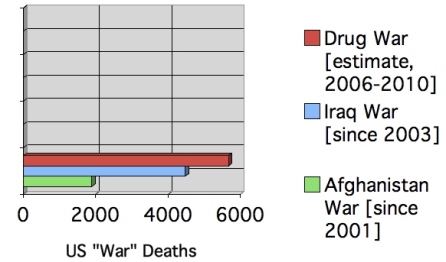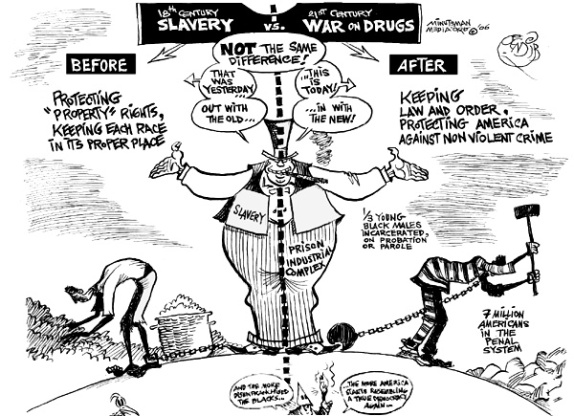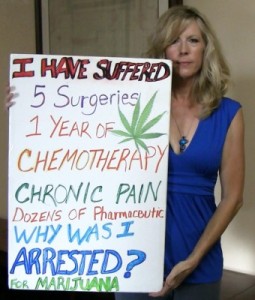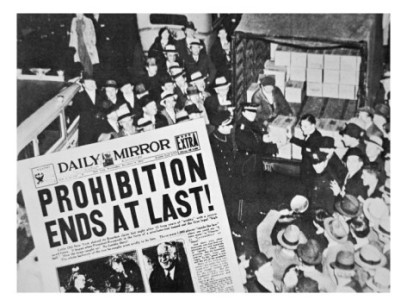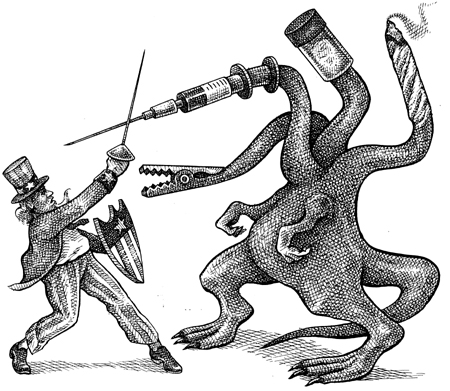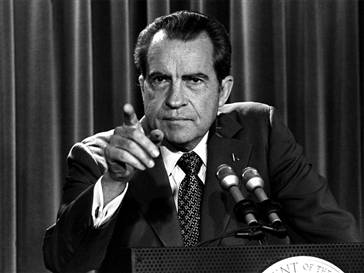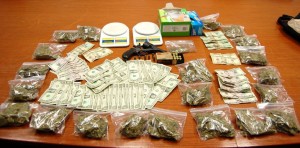On the independent news blog, Activist Post, Eric Blur implies that minority suppression and a high death toll as a result of the Drug War are good things (Clearly, Blur also implies his high level of stupidity). In his December 8, 2011 article, “10 Ways the War on Drugs is a Success,” Blur absurdly claims that the United States has been winning the War on Drug so far, which can be seen in a variety of ways. For example, Blur actually claimed that drug violence justifies tough gun laws. First of all, how can drug violence be justified in any way when it has ultimately led to the death of thousands? If drugs were legalized, there would be no need for tough gun laws. Since 2006, the death toll from the Drug War has been greater than the death toll in the war in Iraq. Blur is completely ignorant in claiming that the fact that we have had to toughen gun laws could possibly be a benefit.
Blur continues on make a completely racist and ignorant argument for the support of the Drug War by claiming that, “it is a huge success for those who wish to suppress minority populations.” To argue against the War on Drugs, we often use this point of African-Americans and Latinos making up the majority of drug-related incarcerations as a bad thing. The fact that minorities are suppressed so highly in the Drug War demonstrates the inequitable treatment by the criminal justice system through law enforcement’s focus on urban areas, on lower-income communities and on communities of color. To actually claim that this racist practice is an advantage certainly shows the lack of morality of Mr. Burr (along with his lack of intelligence). The political cartoon below illustrates how the War on Drugs is the modern-day equivalent to slavery and discrimination.
Blur’s other ludicrous argument for the War on Drugs is that it is effective at preventing high unemployment rates in the U.S. since many incarcerated people have committed drug-related crimes. Blur is now implying that those incarcerated for drugs could not possibly be useful members of society (which again demonstrates his lack of intelligence and morality). If those incarcerated for drugs were released, there would be a greater opportunity for the general greater advancement of our society. Who is Blur to insinuate that those incarcerated are not capable of finding jobs or creating a better future for themselves? The more people there are contributing to our society, the more contributed ideas and the more overall progression. Additionally, there would be thousands (if not hundreds of thousands) of more jobs created in order to prevent drug use of minors and in the creation of new age-restricted laws, area-restricted laws for the recreational use of the newly-legalized drugs.
Blur’s arguments for the advocacy of the War on Drugs seems like a desperate attempt to try and justify what everyone knows is a failed war.
